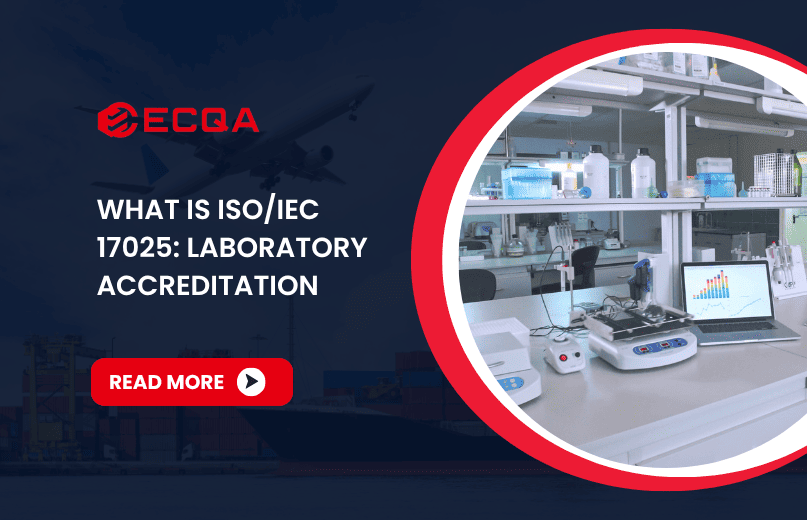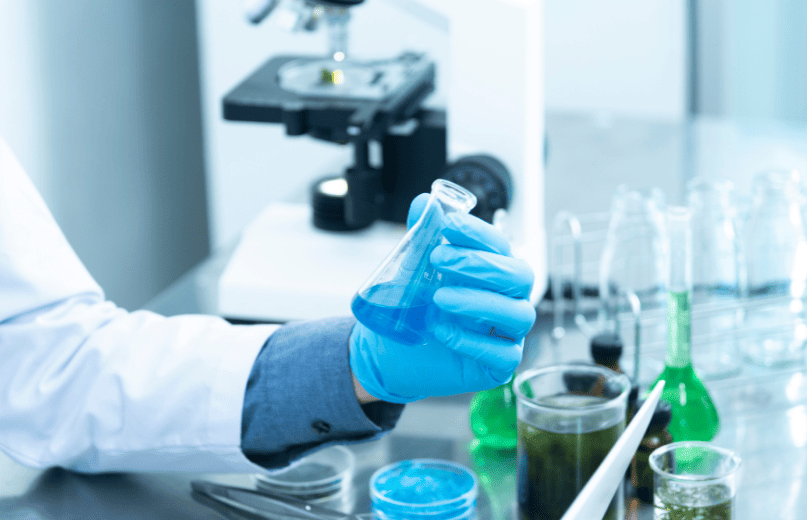
What is ISO/IEC 17025
ISO/IEC 17025 is the international standard that defines the general requirements for the competence of testing and calibration laboratories. It ensures that laboratories are technically competent and capable of producing accurate, reliable, and traceable results.

The Purpose of ISO/IEC 17025
ISO 17025 was developed by the International Organization for Standardization (ISO) and the International Electrotechnical Commission (IEC). Its purpose is to create a unified framework that enables laboratories worldwide to operate under consistent principles of quality and technical competence.
Key objectives include:
- Ensuring testing accuracy and repeatability
- Providing international comparability of results
- Building customer and regulatory confidence
- Supporting trade through mutual recognition of data
Key Aspects of ISO/IEC 17025
1. Scope and Purpose
ISO/IEC 17025 applies to all laboratories that perform testing, calibration, or sampling activities.
The goal is to guarantee technical competence and consistent quality, allowing results from accredited laboratories to be recognized across borders under the ILAC Mutual Recognition Arrangement (ILAC MRA).
2. Management Requirements
ISO/IEC 17025 integrates quality management elements similar to ISO 9001, ensuring that the laboratory maintains effective administrative control.
Key management requirements include:
- Documented quality management system
- Control of records and data integrity
- Handling of nonconforming work and customer complaints
- Internal audits and management reviews
- Continuous improvement mechanisms
3. Technical Requirements
Technical competence is central to ISO/IEC 17025. Laboratories must demonstrate that their results are technically valid and traceable to international standards.
Main technical elements include:
- Qualified and competent personnel
- Validated test and calibration methods
- Measurement traceability and equipment calibration
- Environmental conditions control
- Sampling and handling of test items
- Accurate reporting of results
4. Traceability and Reliability
All measurements must be traceable to national or international standards through an unbroken chain of comparisons. This ensures reliability of results and supports international recognition.
5. Accreditation and Oversight
Each country has an official accreditation body responsible for evaluating laboratories. In China, this is handled by CNAS (China National Accreditation Service for Conformity Assessment), which operates under the ILAC MRA framework. Once accredited, laboratories are subject to periodic surveillance and reassessment to maintain compliance.
Benefits of Adhering to ISO/IEC 17025
1. Enhanced Credibility and Trust
Accreditation under ISO/IEC 17025 demonstrates technical competence and compliance with international standards. It enhances a laboratory’s reputation and increases customer confidence in its results.
2. Global Recognition of Test Data
Through CNAS and ILAC MRA mutual recognition, accredited reports are accepted in multiple countries without the need for retesting. This facilitates international trade and reduces compliance duplication.
3. Consistency and Accuracy in Testing
Adherence ensures standardization in laboratory processes, improving measurement accuracy, repeatability, and overall data reliability.
4. Improved Operational Efficiency
Implementing ISO 17025 systems helps laboratories manage resources effectively, reduce errors, and prevent rework, leading to improved productivity and cost control.
5. Regulatory and Market Advantage
Accredited laboratories meet mandatory requirements for regulatory submissions, product certification, and trade compliance inspection. Many importers and certification schemes specifically require ISO 17025-accredited data.
6. Competitive Edge in the Industry
Accreditation differentiates a laboratory from competitors by providing verifiable proof of technical and quality excellence. It strengthens eligibility for large contracts and strategic partnerships.
7, Support for Continuous Improvement
ISO/IEC 17025 emphasizes ongoing monitoring, root cause analysis, and corrective actions. This ensures that quality and performance remain consistent over time.
ISO/IEC 17025 in the Trade Compliance Context
For exporters, ISO/IEC 17025 plays an essential role in Trade Compliance Inspection. Accredited laboratory reports provide evidence that products meet destination-country regulations such as CE, CCC, SASO, or GSO requirements.
Combining ISO 17025 accreditation with recognized inspection programs helps ensure that exported products meet safety and regulatory standards, minimizing the risk of customs detention, rejections, or recalls.
Why ISO/IEC 17025 Is Important
1. Ensures Technical Competence
ISO/IEC 17025 confirms that a laboratory has the technical capability, calibrated equipment, and trained personnel required to produce valid test or calibration results. It verifies that every measurement is traceable to recognized international or national standards, ensuring that results are accurate and reproducible.
2. Builds Credibility and Trust
Accreditation under ISO 17025 demonstrates to clients, regulators, and certification bodies that a laboratory operates under a proven quality system.This trust is critical for industries such as electronics, food, chemicals, construction materials, and medical devices, where testing accuracy directly affects product safety and compliance.
3. Enables International Recognition
Through CNAS accreditation and participation in the ILAC Mutual Recognition Arrangement (ILAC MRA), test results from accredited laboratories are accepted across borders.
This eliminates duplicate testing, speeds up international approvals, and simplifies export processes for manufacturers.
4. Supports Trade Compliance
ISO 17025 aligns laboratory testing with trade and regulatory requirements.
When combined with Trade Compliance Inspection, accredited test data helps ensure exported products meet destination country standards, reducing the risk of customs holds, rejections, or recalls.
5. Promotes Continuous Improvement
The standard requires laboratories to conduct internal audits, management reviews, and corrective actions.This drives continuous improvement in processes, reduces operational errors, and maintains long-term quality consistency.
6. Increases Business Competitiveness
For testing and inspection companies, ISO 17025 accreditation is a key differentiator. It opens access to government tenders, supplier qualification programs, and international partnerships that require accredited laboratory data.
7. Strengthens Customer Confidence
Clients can rely on ISO 17025-accredited laboratories for unbiased, accurate, and transparent results.
This confidence enhances client relationships and strengthens the reputation of both the laboratory and its customers.
ISO/IEC 17025 is the cornerstone of quality and technical integrity in testing and calibration.
By adhering to this standard, laboratories gain international recognition, customers gain confidence, and industries achieve smoother regulatory and trade compliance.
Organizations that partner with CNAS-accredited or ILAC-recognized laboratories can ensure that every result delivered is accurate, credible, and globally accepted.

 Request Free Sample Report
Request Free Sample Report